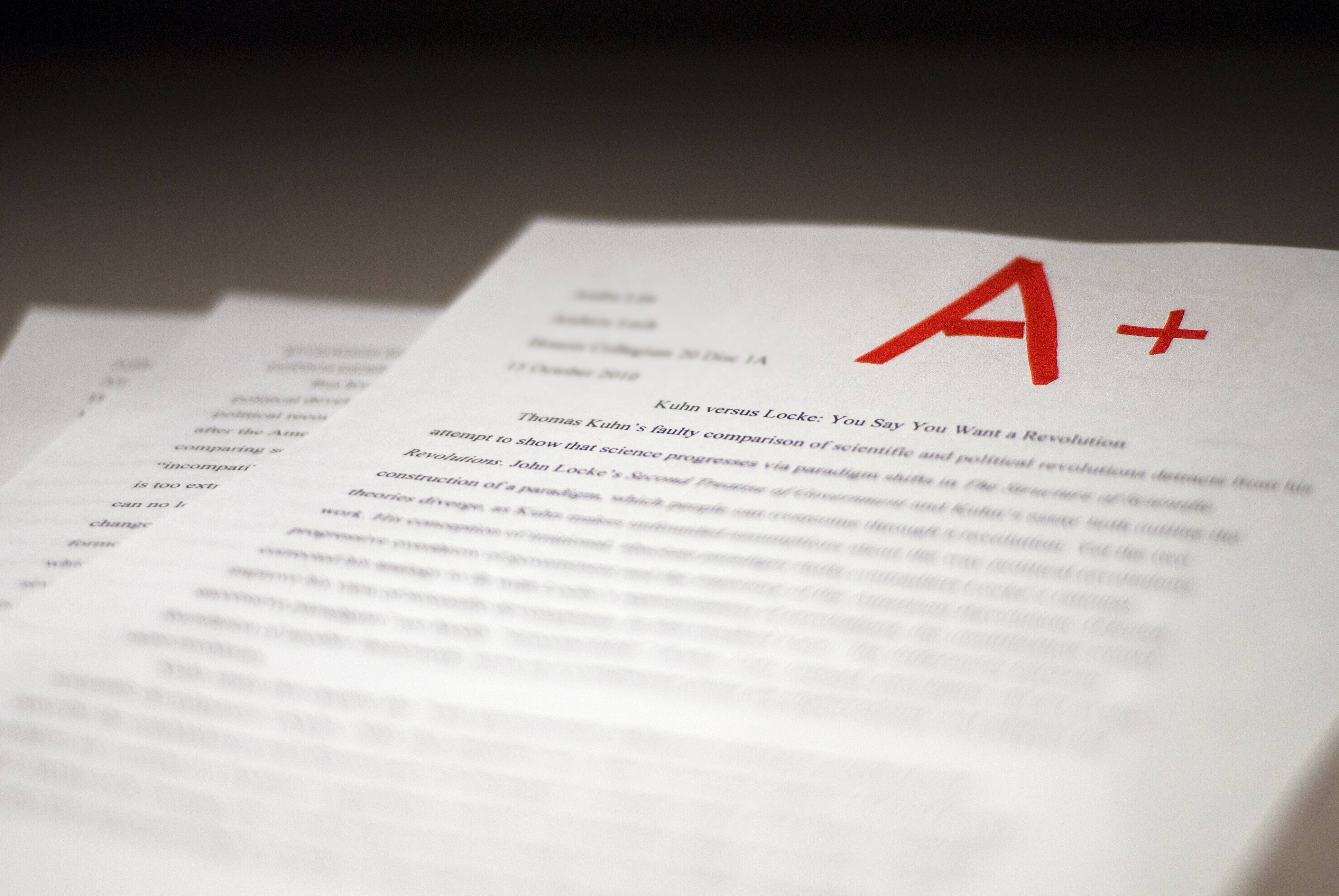America is depriving students of an education by allowing them to take shortcuts

Photo illustration
By Itak Moradi
Jan. 12, 2011 11:14 p.m.
With last week’s column about grade inflation continuing to linger in my thoughts, I have come to wonder whether other factors can help explain the prevalence of high grades.
Are professors, or for that matter, teachers everywhere, too easy on us? Have they also conceded to the international assumption that Americans are lazier, dumber and less attentive than others?
Regrettably, I must say this position is not entirely unwarranted. According to the Program for International Student Assessment’s 2010 report, we now statistically fall within the “average” category for global education rankings, and yet I do not think we should passively ingest this information.
With our dilapidated ranking in mind ““ as well as Gov. Jerry Brown’s newest plan to cut another $500 million from the University of California budget and the loss of the Development Relief and Education for Alien Minors Act ““ it is now more than ever crucial that educational authorities aid youth in pushing themselves academically.
If we can seriously hope to repair the financial and political mess in which our country now finds itself, American youth have to be better mentally equipped.
I do not mean to disrespect those who dedicate their lives to the betterment of U.S. education, but I do want to note that the capabilities of students at every level are repeatedly underestimated, which means, of course, eventually hindered.
Consider the ubiquitous use of a prompt in most writing classes. While providing guidelines is a fundamental and effective teaching strategy, undergraduate education is meant to bestow us scholarly minions with critical thinking skills. Not only in graduate or professional school, but in eventual vocations, many of us will need the ability to raise academically solid questions that we then pursue.
And yet we often write under such explicit roadmaps that the easy thought of last-minute regurgitation keeps many of us at our procrastinating pinnacles.
I am now in my second English class in which the professor is avidly against providing us with essay prompts. While I was taken aback by the thought last quarter, this time around I’ve adjusted to what has otherwise been so unfamiliar.
I am already reading my novels with a more analytical eye ““ the thought that I will be fully responsible for the direction of my papers requires of me an instant seriousness that I hadn’t really experienced, even though I am a third-year.
And what is there to say for curving classes? I have obviously danced a very joyous dance to praise the curve gods, but I still don’t understand the point. Normalizing a class to fit a bell curve is too capricious of any argument for me; students should be assessed against a standard, not against each other.
An easy A is doing no one any favors. Grade inflation illuminates the fact that undergraduate studies are slowly coming to provide students with a credential before a substantial education, and a credential without the meat is doomed for inadequacy.
But it’s backwards of me to endorse more rigorous education at the university level when it is necessary for the effort to begin much sooner.
Cynical may be my middle name today, but I can’t say I have extremely high hopes for that, especially when even spelling is losing its value.
This marks the first year that the Oregon Department of Education is allowing students to take their standardized writing exams using a spell check.
Why?
“We are not letting a student’s keyboarding skills get in the way of being able to judge their writing ability,” said Oregon State Superintendent Susan Castillo.
Castillo has unfortunately overlooked the fact that spelling is indivisible from reading confidence, which is then indivisible from “writing ability.”
Of the 34 countries the Program for International Student Assessment reviewed for reading skills, the U.S. is true to its “average” ranking by finally arriving at 14. The 14th position is no position to be creating more shortcuts for students, especially when it comes to so vital a tool as reading comprehension.
I should be arriving at my proposed solutions now, but I don’t know any. I do know that for the sake of a viable future I want my peers to take education more seriously. But, this I cannot expect to happen until we are thought able enough to do so.
Think UCLA is challenging enough already? E-mail Moradi at [email protected]. Send general comments to [email protected].


